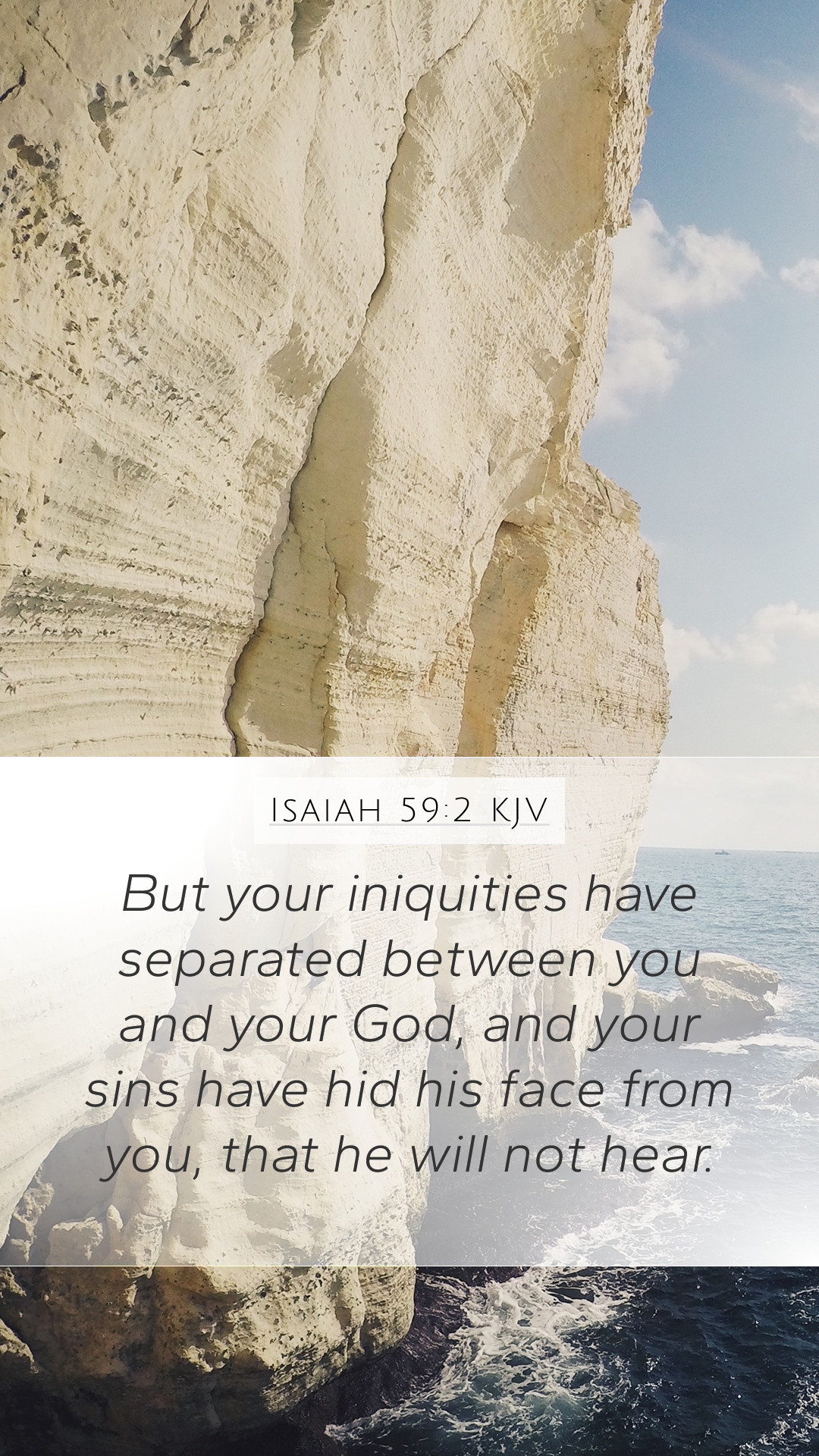Bible Verse Meaning
This verse reflects the profound separation caused by sin between humanity and God. It emphasizes that iniquities, or moral wrongdoings, create a barrier that hinders a relationship with the divine. Both Matthew Henry and Adam Clarke highlight this separation as a consequence of human actions rather than God's refusal to engage.
Bible Verse Interpretations
- Matthew Henry: He elucidates that this separation is not merely a physical distance but a spiritual estrangement that occurs due to sin. Sin acts as a veil, obstructing God's favor and blessings.
- Albert Barnes: Barnes notes that the 'face of God' symbolizes His presence and favor. When individuals continue in sin, they may feel abandoned or distant from God's guidance and help.
- Adam Clarke: Clarke points out that while God does not turn away from us, our sins cause us to turn away from Him. This mutual distance is a result of our own choices rather than a reflection of God's willingness to connect.
Bible Verse Explanations
In exploring this verse further, we see that it serves as a stark warning about the implications of sin. Our ethical and moral choices shape our relationship with God. The verse calls for a reflection on personal behavior and encourages repentance.
Bible Study Insights
This passage holds significant implications for personal and communal worship. It invites individuals to seek transformation and healing by acknowledging the reality of sin in their lives. In Bible study groups, this topic could lead to deep discussions about the nature of sin, repentance, and reconciliation with God.
Understanding Scripture in Context
Examining the historical context of Isaiah reveals that the Israelites faced dire consequences due to their unfaithfulness and moral decay. The prophet Isaiah speaks candidly about how their sins have led to a disconnect with God, which is a recurring theme throughout the prophetic literature.
Application of Something Old
This biblical truth is timeless and can be applied to daily life. Recognizing our sins and their consequences can lead to personal revival and a closer relationship with God. The necessity for confession and repentance is underscored in this verse, illuminating the pathway to restoration with God.
Cross References
- Psalm 66:18 - "If I regard iniquity in my heart, the Lord will not hear me."
- James 4:8 - "Draw near to God, and he will draw near to you. Cleanse your hands, you sinners, and purify your hearts, you double-minded."
- Isaiah 1:15 - "And when you spread forth your hands, I will hide my eyes from you: yes, when you make many prayers, I will not hear: your hands are full of blood."
Conclusion
Ultimately, Isaiah 59:2 serves as both a warning and an invitation. It calls believers to recognize the impact of sin while also extending God's grace through repentance. For those engaged in online Bible study or using Bible study tools, this verse offers a rich foundation for exploration, reflection, and application within the community of faith.


